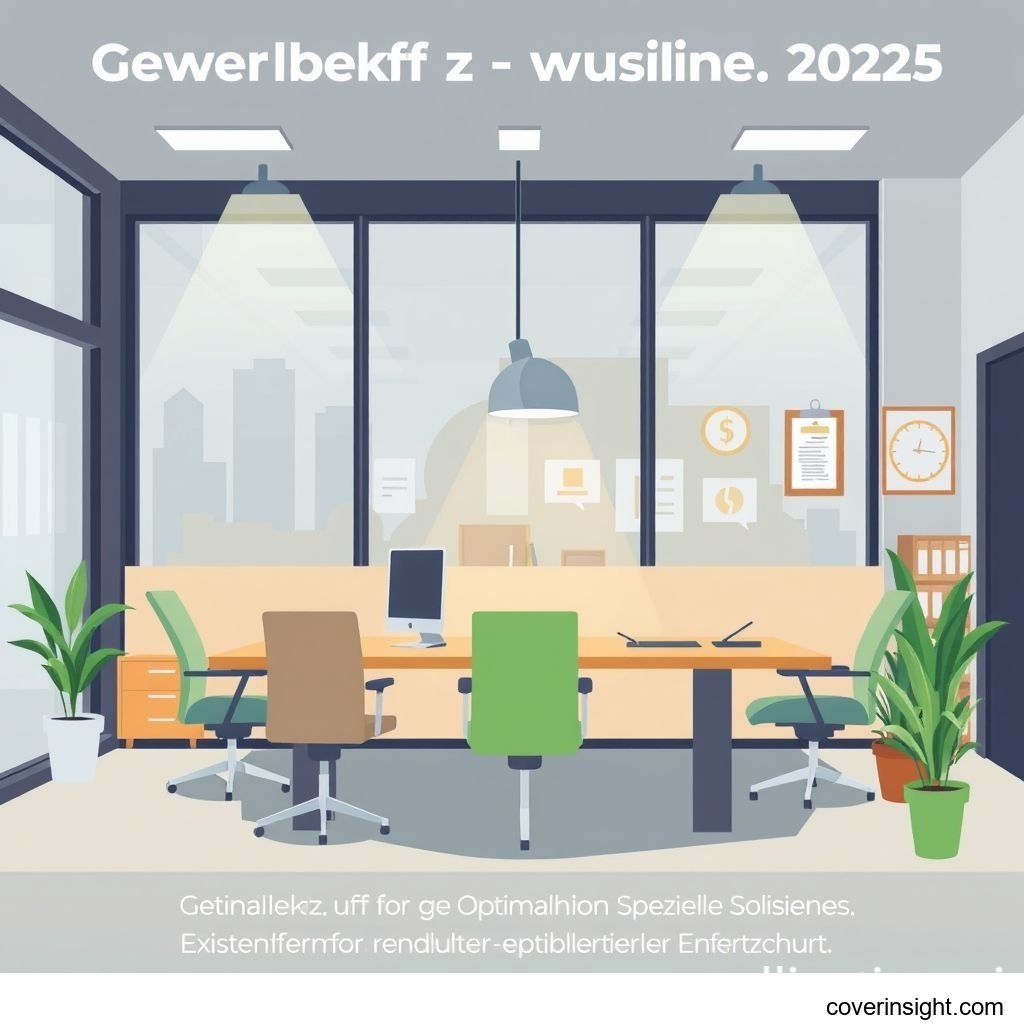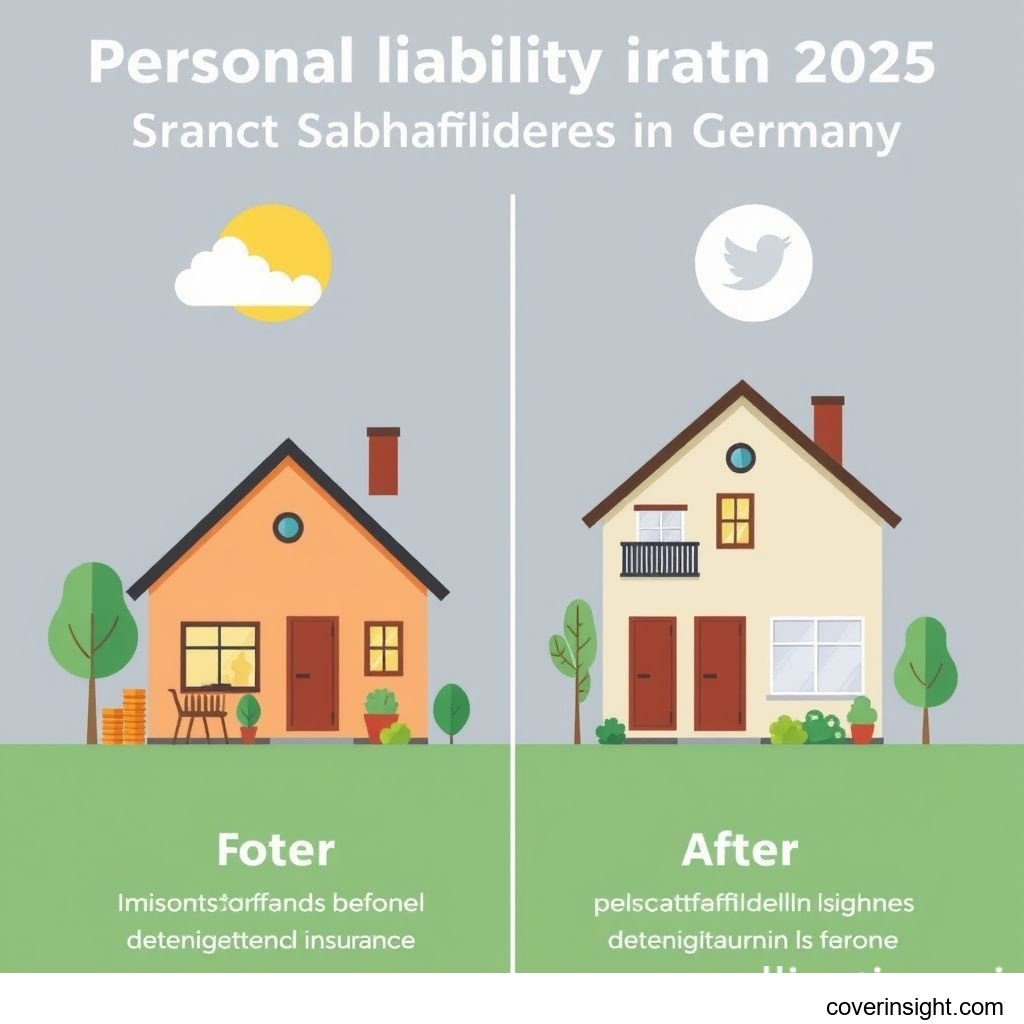Gewerbekfz Versicherung DE: Smart 2025 absichern
Introduction
Navigating the world of commercial vehicle insurance in Germany, or Gewerbekfz Versicherung, is a crucial task for any business owner, especially as we look towards 2025. It’s not merely a legal requirement; it's a vital component of risk management, safeguarding your company's assets and ensuring operational continuity. From the agile city delivery vans to heavy-duty logistics trucks, every vehicle in your fleet represents a significant investment and, without proper coverage, a potential financial liability. As the business landscape evolves, so do the demands on insurance policies, making it essential to choose wisely and ensure your vehicles are robustly protected against the unforeseen.
Coverage Details
Choosing the right Gewerbekfz Versicherung means understanding what’s on offer and what might be left out. It’s about tailoring the policy to your specific business needs, much like a good tailor fits a suit.
What’s Included
Typically, a Gewerbekfz Versicherung in Germany comprises several layers of protection:
-
Haftpflichtversicherung (Liability Insurance): This is the absolute minimum and mandatory by law. It covers damages caused to third parties (persons, vehicles, property) by your commercial vehicle. Without it, your vehicle isn't legally allowed on German roads.
-
Teilkaskoversicherung (Partial Comprehensive Insurance): This optional but highly recommended add-on covers damages to your own vehicle that aren't caused by a collision involving another vehicle. This includes theft, fire, explosion, natural hazards (storm, hail, flood), glass breakage, and collision with wild animals.
-
Vollkaskoversicherung (Full Comprehensive Insurance): The most extensive coverage, Vollkasko includes everything in Teilkasko and adds protection against damages to your own vehicle resulting from your own fault (e.g., an accident where your driver is at fault), vandalism, or hit-and-run incidents where the perpetrator is unknown. For newer or high-value commercial vehicles, Vollkasko is often a non-negotiable choice.
-
Additional Modules: Many insurers offer supplementary benefits like Schutzbrief (breakdown assistance), Rabattschutz (protects your no-claims bonus after a claim), or GAP-Deckung (covers the difference between the vehicle's current value and outstanding lease/loan amount in case of total loss). For a broader understanding of insurance concepts, you might find more general information at Insurance Resources Global.
Common Exclusions
While policies are designed to protect, there are always some common exclusions to be aware of. Knowing these can prevent nasty surprises when you need to make a claim. Generally, you won't be covered for:
-
Intentional Damage: Damage caused deliberately by the driver.
-
Gross Negligence (in some cases): While some modern policies cover aspects of gross negligence, others may exclude it entirely or reduce payouts. Examples include driving significantly over the speed limit or ignoring clear warning signs.
-
Damage from Racing Events: Participation in competitive motor sports is typically excluded.
-
Wear and Tear: Routine maintenance issues, mechanical breakdowns not related to an accident, or damage from wear and tear are not covered by insurance.
-
Consequences of Unlicensed or Impaired Driving: Accidents occurring when the driver doesn't hold a valid license or is under the influence of alcohol or drugs.
-
War and Civil Unrest: Damages arising from acts of war, terrorism, or civil disturbances.
-
Improper Loading or Overloading: Damages caused directly by incorrectly loaded goods or exceeding the vehicle’s maximum permissible weight.
Cost Analysis
The cost of Gewerbekfz Versicherung can vary significantly, making a thorough comparison indispensable.
Price Factors
Several elements play a role in determining your premium:
-
Vehicle Type: The make, model, engine size (PS), age, and type of commercial vehicle (e.g., transporter, truck, special vehicle) are key factors. Higher horsepower vehicles or those with a higher risk profile often command higher premiums.
-
Industry and Usage: The nature of your business and how the vehicle is used (e.g., local delivery, long-haul transport, construction site vehicle) significantly influences the risk assessment.
-
Annual Mileage: The more kilometers your vehicle covers per year, the higher the risk of an accident, and thus, often a higher premium.
-
Location: Like private car insurance, the region in Germany where your business operates can influence the premium due to varying accident statistics and repair costs.
-
Driver Profile: The age, experience, and claims history of the primary drivers or the average driver profile in your company.
-
No-Claims Class (Schadenfreiheitsklasse - SFK): Your company's history of claims (or lack thereof) directly impacts your SFK, with higher SFKs (more years without a claim) leading to substantial discounts.
-
Deductible (Selbstbeteiligung): A higher deductible, the amount you pay out-of-pocket for each claim, generally leads to lower monthly premiums.
-
Coverage Extent: Opting for Vollkasko will naturally be more expensive than just Haftpflicht.
Saving Tips
Keeping costs down without compromising essential coverage is a balancing act, but definitely achievable:
-
Compare Offers Diligently: Don't just stick with the first offer. Use online comparison portals or consult with independent insurance brokers to get a wide range of quotes.
-
Increase Your Deductible: If your business has a healthy financial buffer, increasing the Selbstbeteiligung can significantly reduce your annual premiums.
-
Bundle Policies: If you have multiple commercial vehicles or other business insurance needs (e.g., liability, property), bundling them with one insurer can often lead to multi-policy discounts.
-
Annual Payment: Paying your premium annually instead of monthly or quarterly can sometimes save you a small percentage.
-
Maintain a Good Claims Record: Safe driving practices are your best friend here. A clean Schadenfreiheitsklasse is the most impactful way to reduce premiums over time.
-
Security Features: Vehicles equipped with advanced safety features or anti-theft devices might qualify for discounts.
-
Review Your Policy Annually: Your business needs change, and so might your policy requirements. A yearly review ensures you're not over-insured or paying for coverage you no longer need. For specific regulations and oversight, you can always check with the BaFin - Federal Financial Supervisory Authority.
FAQs
-
How much does Gewerbekfz Versicherung cost?
There’s no single answer. The cost varies widely depending on all the price factors mentioned above, from a few hundred euros to several thousand per year, per vehicle. It really depends on "what you've got under the hood," literally and figuratively!
-
What affects premiums?
Premiums are primarily affected by the vehicle type, its usage, annual mileage, the region it operates in, the drivers' experience and claims history (Schadenfreiheitsklasse), the chosen deductible, and the extent of coverage (liability, partial, or full comprehensive).
-
Is it mandatory?
Yes, Haftpflichtversicherung (liability insurance) is legally mandatory for all motor vehicles operating on public roads in Germany, including commercial vehicles. Without it, your vehicle cannot be registered or driven. This is a fundamental principle of German road safety and financial protection.
-
How to choose?
To choose the right policy, assess your specific business needs (e.g., vehicle types, typical routes, value of goods transported), compare offers from various reputable insurers, pay close attention to the terms and conditions, and don't hesitate to seek advice from a professional insurance broker. Sometimes, going for the cheapest option can turn out to be a "penny wise, pound foolish" decision in the long run.
-
Consequences of no coverage?
Driving without the mandatory Haftpflichtversicherung is a serious offense in Germany, punishable by fines, penalty points, and potentially even imprisonment. More importantly, if your uninsured vehicle causes damage, your business would be personally liable for all costs, which can easily amount to hundreds of thousands or even millions of euros, potentially leading to bankruptcy. According to data from the GDV - German Insurance Association, the average claim for property damage in liability cases can be substantial, underscoring the vital need for coverage. Consider 'Logistik Schmidt' from Brandenburg: they initially opted for basic liability to save costs. After a minor accident involving one of their delivery vans, which was clearly their driver's fault, the repair costs for their own vehicle weren't covered. This hit their bottom line significantly, forcing them to re-evaluate their policy and highlighting the importance of comprehensive protection.
Based on my experience living and working in Germany, Germans are quite meticulous when it comes to contracts and legal obligations, and Gewerbekfz Versicherung is no exception. It’s not just about ticking a box; it’s about ensuring that your business is prepared for any eventualities, preventing a small incident from turning into a major financial headache. As someone who has seen businesses grapple with unexpected costs, I can't stress enough the value of putting your insurance policies "auf Herz und Nieren prüfen" (testing them thoroughly) before committing. For further insights into German-specific insurance, exploring DE Insurance Home might also be beneficial.
Further reading: Insurance Resources Global
Further reading: DE Insurance Home







Comments